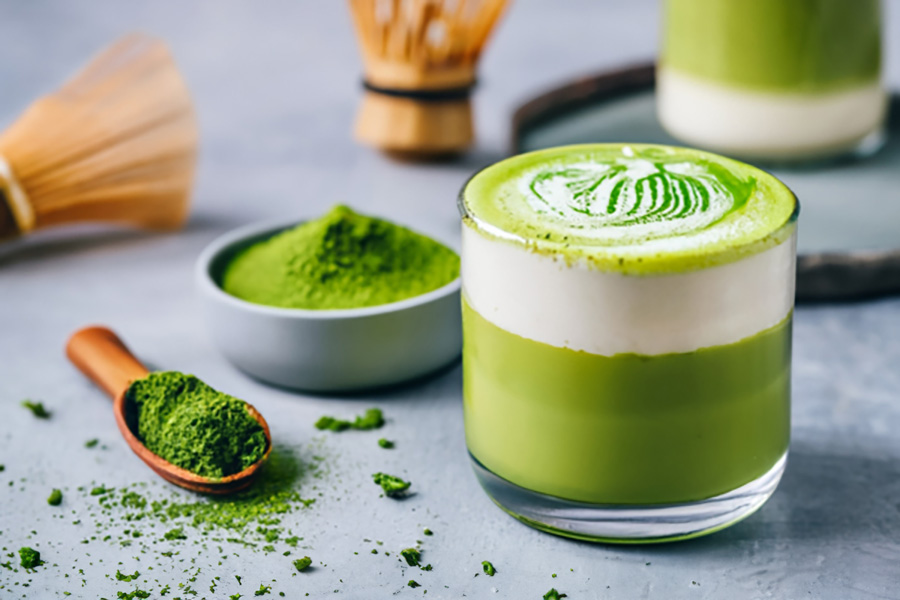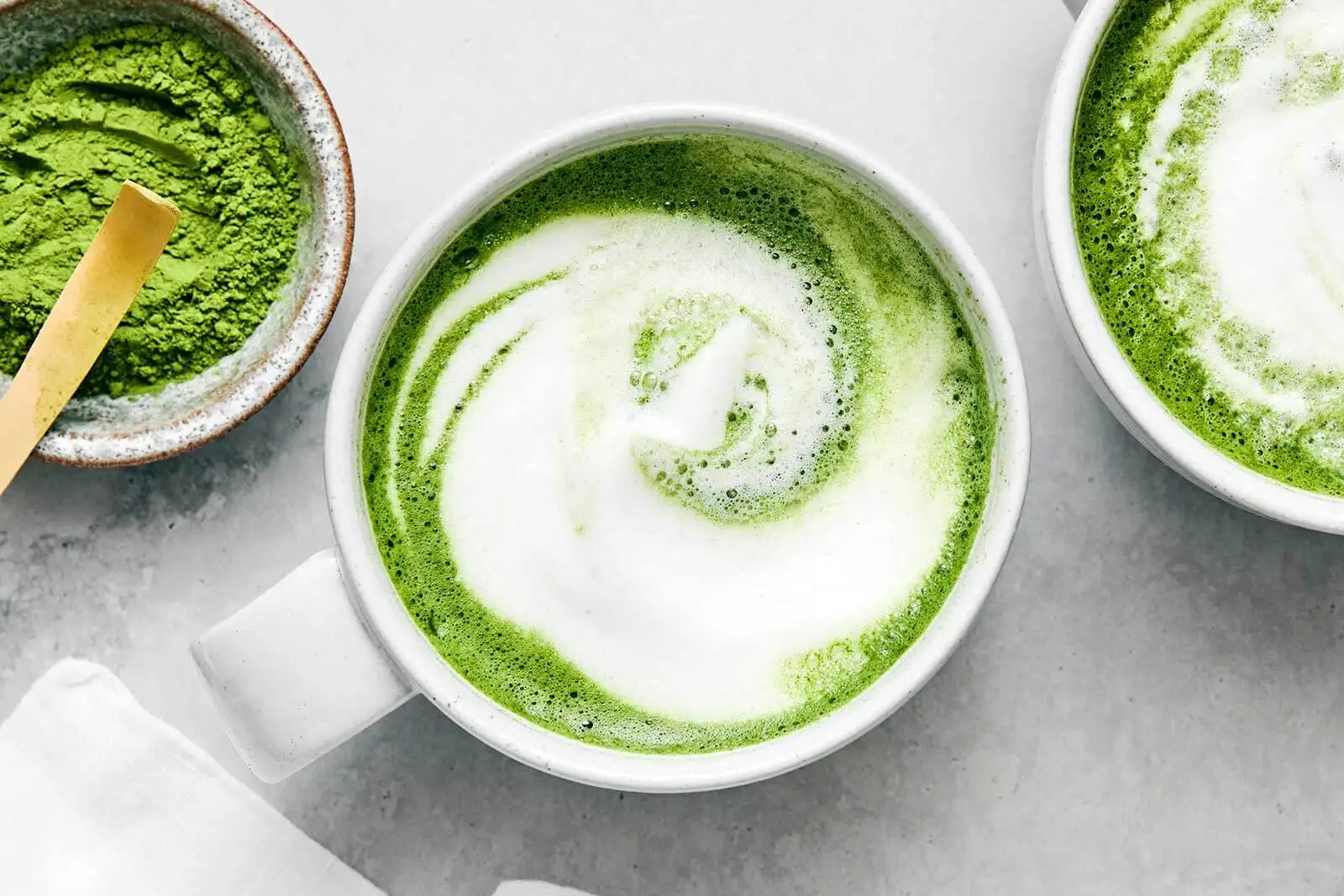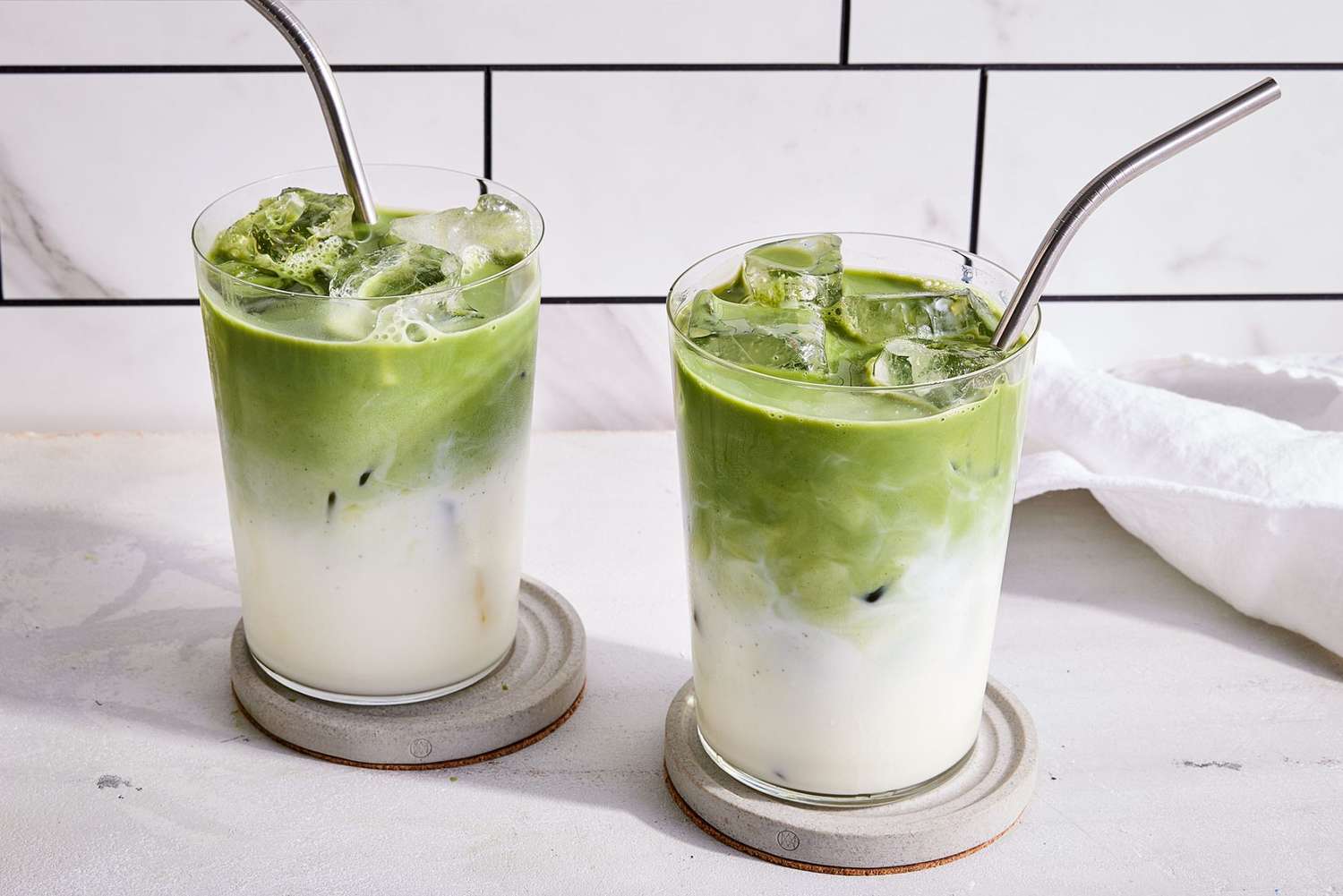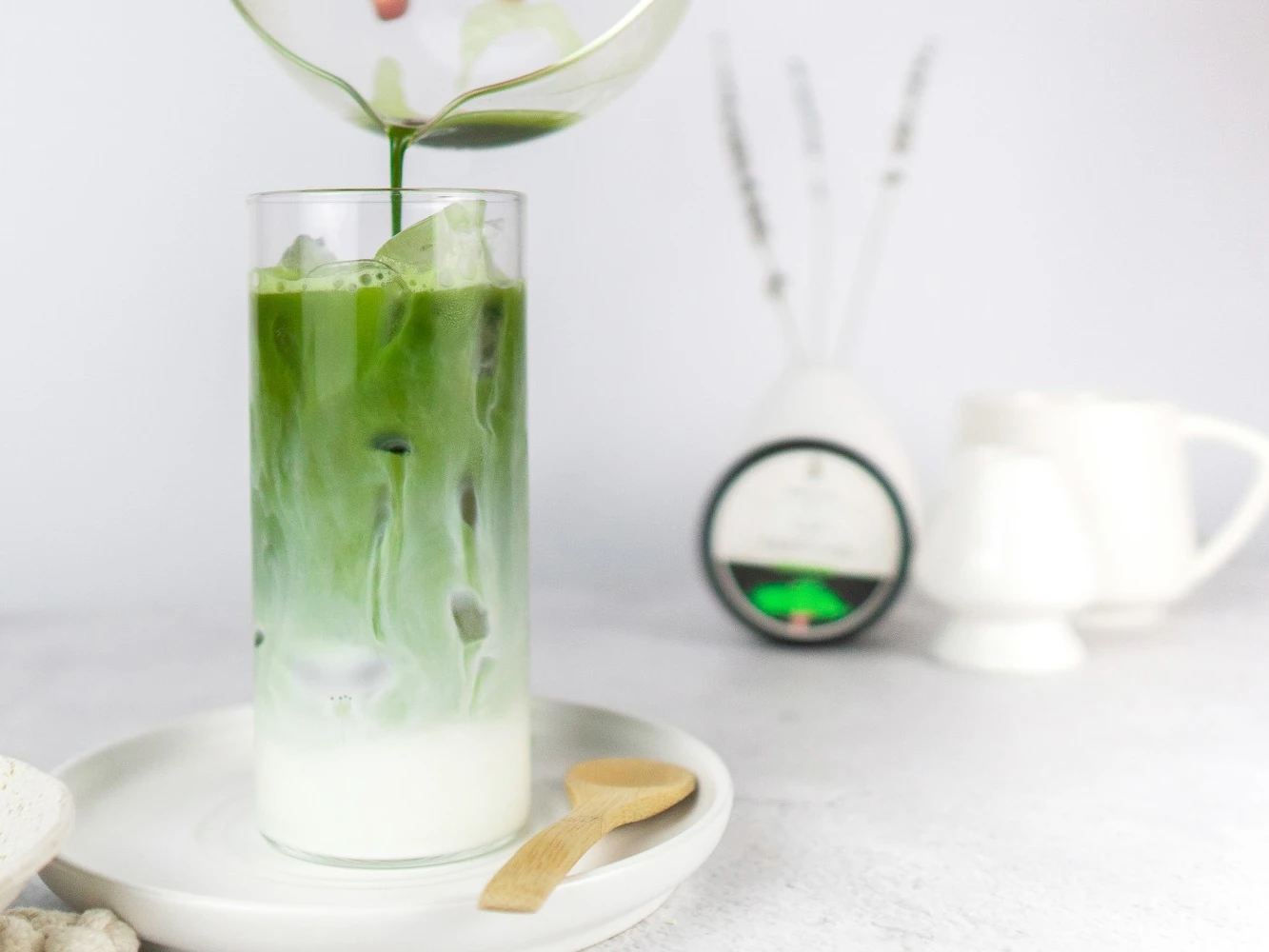
Matcha latte has swiftly emerged as a beloved beverage choice for those seeking a harmonious blend of indulgence and health benefits. This vibrant green drink, crafted from finely ground powdered green tea leaves, offers a unique sensory experience that tantalizes the taste buds and invigorates the senses. In this article, we’ll delve into the origins, preparation, health benefits, and cultural significance of matcha latte.
Contents
Discovering the Delightful World of Matcha Latte: A Green Tea Elixir

Origins and Preparation:
Matcha, a traditional Japanese tea, traces its origins back to the ancient tea ceremonies of Zen monks. The tea leaves are meticulously shade-grown, hand-picked, and stone-ground into a fine powder, resulting in a vibrant green hue and rich flavor profile. To prepare matcha latte, the powdered matcha is whisked with hot water to create a frothy green tea base, which is then combined with steamed milk and optionally sweetened with honey or syrup.
Health Benefits:
- Rich in Antioxidants: Matcha is renowned for its high antioxidant content, particularly catechins and EGCG (epigallocatechin gallate), which help neutralize free radicals and reduce oxidative stress in the body.
- Boosts Metabolism: The combination of caffeine and L-theanine in matcha promotes a gentle energy boost and enhances focus and concentration, without the jitters or crash associated with coffee.
- Supports Detoxification: Matcha contains chlorophyll, a natural detoxifier that helps cleanse the body of toxins and heavy metals, promoting overall health and well-being.
- Enhances Calmness: L-theanine, an amino acid found in matcha, promotes relaxation and a sense of calm, counteracting the stimulating effects of caffeine and promoting a state of alert relaxation.
- Promotes Heart Health: Regular consumption of matcha has been associated with lower cholesterol levels, improved blood sugar regulation, and reduced risk of heart disease.
Cultural Significance:
In Japanese culture, matcha holds a revered place as a symbol of purity, tranquility, and mindfulness. The traditional Japanese tea ceremony, known as “chanoyu” or “sado,” emphasizes harmony, respect, and tranquility, with matcha serving as the centerpiece of the ritual. Matcha is also celebrated for its role in promoting spiritual awareness and mental clarity, making it a cherished part of Zen meditation practices.

Indulge in the Matcha Moment:
Whether sipped in a serene tea ceremony or enjoyed as a comforting latte, matcha offers a delightful fusion of flavor, aroma, and wellness benefits. Its vibrant green hue and rich umami taste appeal to the senses, while its myriad health benefits nourish the body and mind. So next time you crave a moment of tranquility and rejuvenation, indulge in a cup of matcha and savor the green tea elixir that has captivated hearts and minds for centuries.
Exploring the Pros and Cons of Matcha Latte: A Green Tea Infusion
Matcha latte, a delightful concoction of finely ground powdered green tea and steamed milk, has garnered a dedicated following for its unique flavor profile and purported health benefits. While this vibrant green lunatogel beverage offers a host of advantages, it also comes with its share of considerations. In this article, we’ll delve into the strengths and weaknesses of matcha latte to help you make an informed decision about incorporating it into your diet.
Advantages of Matcha Latte:
- Abundant in Antioxidants: Matcha is loaded with antioxidants, particularly catechins and EGCG, which help combat oxidative stress and protect cells from damage caused by free radicals. Consuming matcha latte regularly may contribute to overall health and well-being.
- Boosts Energy and Focus: Matcha contains caffeine and L-theanine, a unique combination that promotes alertness, enhances cognitive function, and improves concentration. Unlike the jittery energy spike associated with coffee, matcha provides a sustained energy boost without the crash.
- Supports Metabolism and Weight Management: The combination of caffeine and catechins in matcha has been shown to boost metabolism and increase fat oxidation, making it a potential aid in weight management when consumed as part of a balanced diet and active lifestyle.
- Promotes Relaxation and Calmness: Despite its caffeine content, matcha also contains L-theanine, an amino acid known for its calming effects. L-theanine promotes relaxation, reduces stress, and fosters a sense of tranquility, making matcha latte a soothing beverage choice.
- Provides Nutritional Benefits: Matcha is a good source of vitamins, minerals, and amino acids, including vitamin C, vitamin A, potassium, and fiber. Incorporating matcha latte into your diet can help boost your nutrient intake and support overall health.

Disadvantages of Matcha Latte:
- Potential for Caffeine Overconsumption: While matcha latte provides a gentler energy boost compared to coffee, it still contains caffeine. Excessive consumption of caffeine can lead to jitteriness, insomnia, and increased heart rate, particularly in sensitive individuals.
- Caloric Content: Matcha latte prepared with milk and sweeteners can be higher in calories compared to plain matcha tea. Those watching their calorie intake should be mindful of portion sizes and added ingredients to avoid excess calories and sugar.
- Cost: High-quality matcha powder can be expensive, especially compared to other types of tea. Regular consumption of matcha latte may not be financially feasible for everyone, making it more of a treat than a daily staple for some individuals.
- Potential for Allergic Reactions: While rare, some people may be allergic to certain components of matcha, such as caffeine or milk proteins. Those with allergies or sensitivities should exercise caution and consult a healthcare professional if experiencing adverse reactions.
- Staining Potential: Matcha’s vibrant green color comes from chlorophyll, which can stain teeth and clothing if spilled or consumed frequently. Proper oral hygiene practices and careful handling can help mitigate this issue.
Conclusion:
Matcha latte offers a delicious and nutritious alternative to traditional caffeinated beverages, with a unique flavor profile and potential health benefits. However, like any food or beverage, it’s essential to consider both its advantages and disadvantages and consume it in moderation as part of a balanced diet. By doing so, you can enjoy the pleasures of matcha latte while minimizing potential drawbacks and maximizing its positive impact on your health and well-being.
Read More Article About “Granit Xhaka: The Swiss Maestro Redefining Midfield Mastery“






